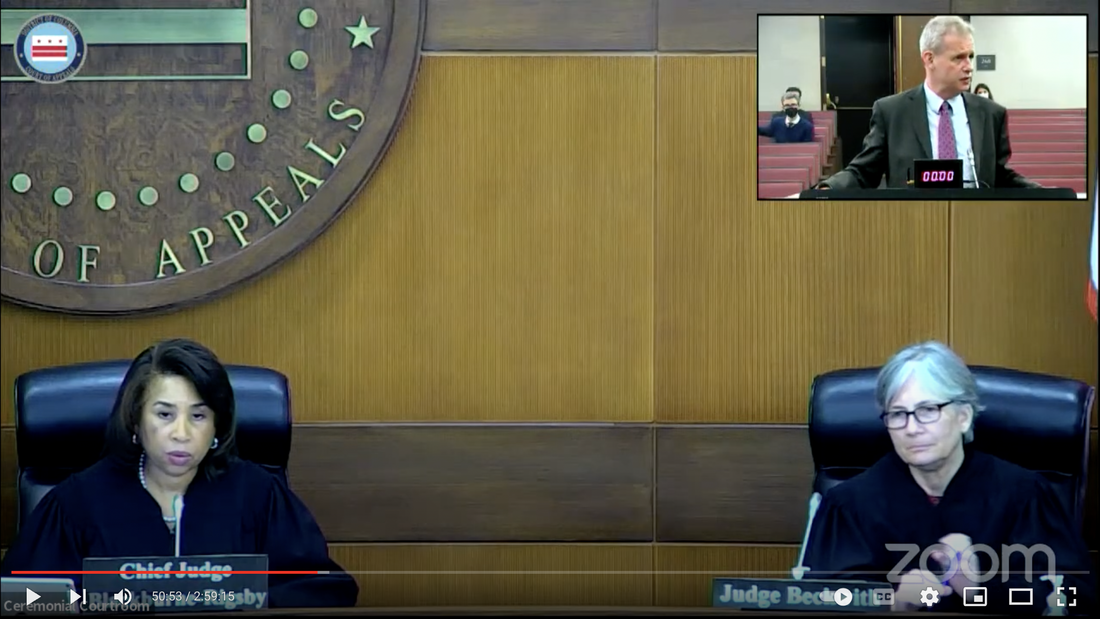|
Eugene Volokh Represents Protect The 1st Eugene Volokh, famed legal scholar and professor of law at UCLA, appeared before the judges of the D.C. Court of Appeals in Mashaud v. Boone. The result (go to 50:50 mark) is 26 minutes of rich discussion about the First Amendment and its limits.
The court’s en banc hearing examines the District of Columbia anti-stalking statute that makes it a crime to (among other things) “directly or indirectly … in person or by any means, on two or more occasions” communicate “about another individual” where the speaker “should have known” that communications would cause “significant mental suffering or distress.” Judge Catherine Friend Easterly noted that this provision could apply to “every high school student in the District of Columbia,” to journalists and even to the court itself, since the court’s opinions often publicize unpleasant facts or allegations, thus causing significant emotional distress. The facts of Mashaud are indeed emotional. A distraught husband learned that his wife, who worked at a firm as an intern, had an affair with a superior. The husband informed the company’s HR department about the extramarital affair, made posts on Facebook, and emailed the superior’s colleagues, family, and friends about it. Volokh, Protect The 1st Senior Legal Advisor, argued that to avoid “overbreadth” and “vagueness” the court should limit the law to speech that fits within First Amendment exceptions long recognized by courts – such as fighting words, obscenity, threats, and fraud. To this he might also add narrow categories of highly sensitive personal information, such as Social Security numbers or where one’s children go to school. Volokh cited Organization for a Better Austin v. Keefe, in which the Supreme Court reversed a lower court ruling on First Amendment grounds. In that case, the Court allowed civil rights activists to distribute leaflets with a realtor’s phone number and urged people to call him to complain about his practices. Given that precedent, how could something as vague and broad as the DC statute stand? Judge Easterly asked Volokh why the court should recognize these exceptions instead of just sending the whole section of that law regarding speech back to the DC council to revise. Volokh, happy to welcome that idea, noted that if the court wasn’t going to void that section of the law, it should at least limit its provisions to these well-established exceptions. Volokh’s section of the oral arguments ends with a fascinating discussion about the enduring strength of the First Amendment despite the fact, Volokh noted, that the amendment is itself vague. Comments are closed.
|
Archives
June 2024
Categories
All
|
ABOUT |
ISSUES |
TAKE ACTION |



 RSS Feed
RSS Feed